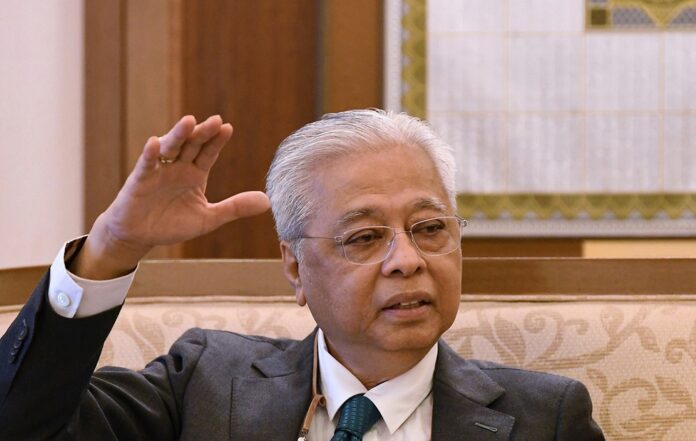Prime Minister Datuk Seri Ismail Sabri Yaakob said the blueprint reflects the government’s clear ambitions to further develop Malaysia’s position and competitiveness in international trade, and supplements the recently-launched 12th Malaysia Plan’s policies.- Bernama pic
KUALA LUMPUR, Oct 25 — Datuk Seri Ismail Sabri Yaakob today launched the National Trade Blueprint (NTBp) 2021-2025 with the aim of helping Malaysia strengthen its position as a leading exporting nation and to improve its competitiveness in trade globally.
The prime minister said this five-year blueprint is also expected to benefit Malaysians by leading to higher income.
In a virtual launching ceremony, Ismail Sabri said the five-year blueprint has eight strategic thrusts and 40 recommendations, adding that it will draw together opportunities to strengthen Malaysia’s position in the international arena.
“It addresses necessary structural changes for the export sector to thrive through strengthening of trade facilitation, logistics, standards conformance, market access, sustainability, digitalisation and technology, investment and branding,” he said in the launch broadcast live by the Malaysia External Trade Development Corporation (Matrade).
Ismail Sabri said the blueprint reflects the government’s clear ambitions to further develop Malaysia’s position and competitiveness in international trade, and supplements the recently-launched 12th Malaysia Plan’s policies by setting out “clear, actionable and focused recommendations” to achieve the 12MP’s targets.
He added that effective deliberation and execution on the NTBp’s 40 recommendations is required to enhance the country’s trade competitiveness, noting that it will be implemented by eight working groups involving specialists from both the public sector and private sector.
“The Blueprint will elevate the nation’s trade competitiveness and strengthen its position as a leading export country,” he said.
Ismail Sabri noted that Malaysia needs to keep improving its trade strategies in line with ever-changing landscapes, and needs to evolve the products and services exported as the country becomes a more diversified economy over time.
“This is what the Blueprint must achieve. It should not just be about improving trade numbers quarter by quarter, but something more meaningful,” he said.
Ismail Sabri said the NTBp should serve as a catalyst to identify future sources of competitiveness for Malaysia, based on an informed understanding of the global supply and demand market, along with collaboration between the government and the private sector.
He also suggested that the NTBp will not only benefit the local business community, but will also have a positive impact on regular Malaysians.
“Besides advocating an economic agenda that is aligned with the nation’s social landscape, the Blueprint’s key thrusts and recommendations strive towards inclusivity, fair distribution of wealth, narrowing of inequality gaps, elevating livelihood of Malaysians, as well as providing positive impacts for the nation through higher income generation,” he added.
MORE TO COME


